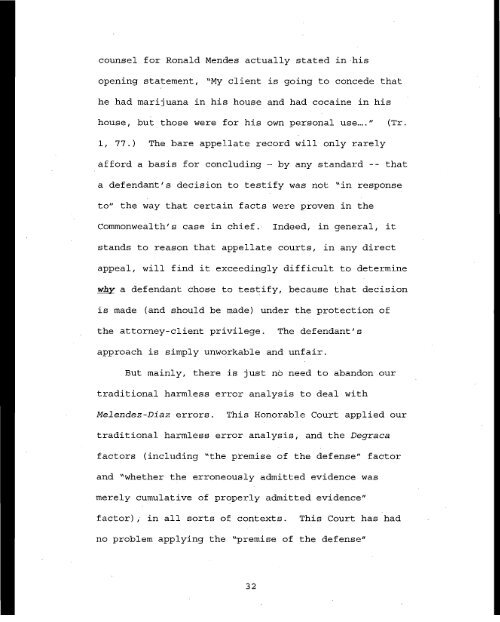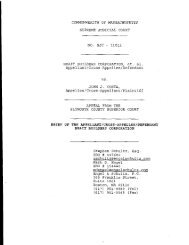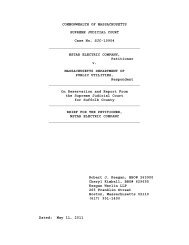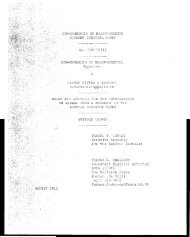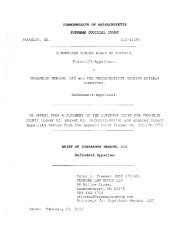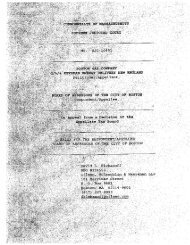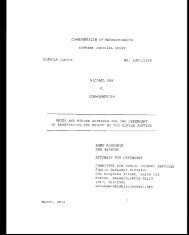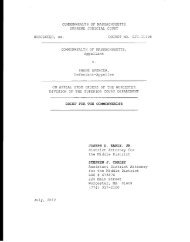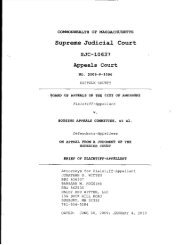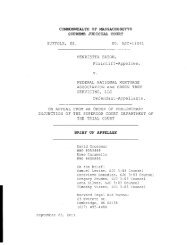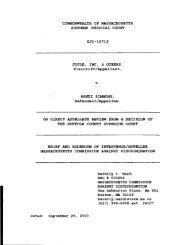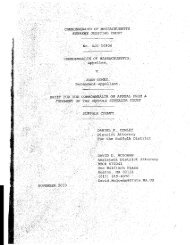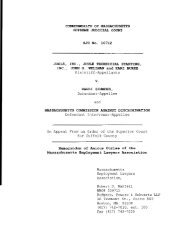463 Mass. 353 - Appellee Commonwealth Brief - Mass Cases
463 Mass. 353 - Appellee Commonwealth Brief - Mass Cases
463 Mass. 353 - Appellee Commonwealth Brief - Mass Cases
Create successful ePaper yourself
Turn your PDF publications into a flip-book with our unique Google optimized e-Paper software.
counsel for Ronald Mendes actually stated in·his<br />
opening statement, "My client is going to concede that<br />
he had marijuana in his house and had cocaine in his<br />
house, but those were for his own personal use .... " (Tr.<br />
The bare appellate record will only rarely<br />
afford a basis for concluding - by any standard -- that<br />
a defendant's decision to testify was not "in response<br />
to" the way that certain facts were proven in the<br />
<strong>Commonwealth</strong>'s case in chief. Indeed, in general, it<br />
stands to reason that appellate courts, in any direct<br />
appeal, will find it exceedingly difficult to determine<br />
why a defendant chose to testify, because that decision<br />
is made (and should be made) under the protection of<br />
the attorney-client privilege. The defendant's<br />
approach is simply unworkable and unfair.<br />
But mainly, there is just nb need to abandon our<br />
traditional harmless error analysis to deal with<br />
Melendez-Diaz errors. This Honorable Court applied our<br />
traditional harmless error analysis, and the Degraca<br />
factors (including "the premise of the defense" factor<br />
and "whether the erroneously admitted evidence was<br />
merely cumulative of properly admitted evidence"<br />
factor); in all sorts of contexts. This Court has had<br />
no problem applying the "premise of the defense"<br />
32


